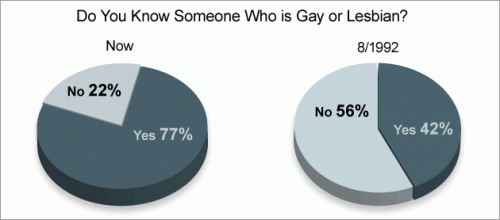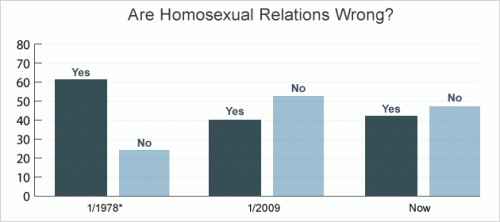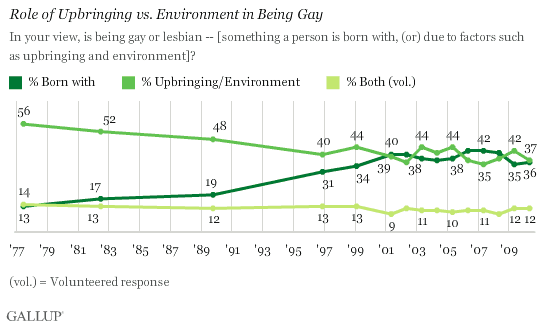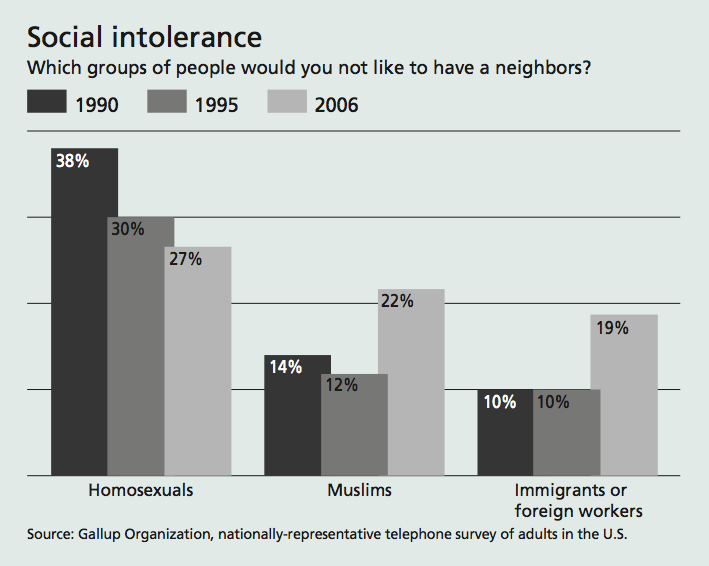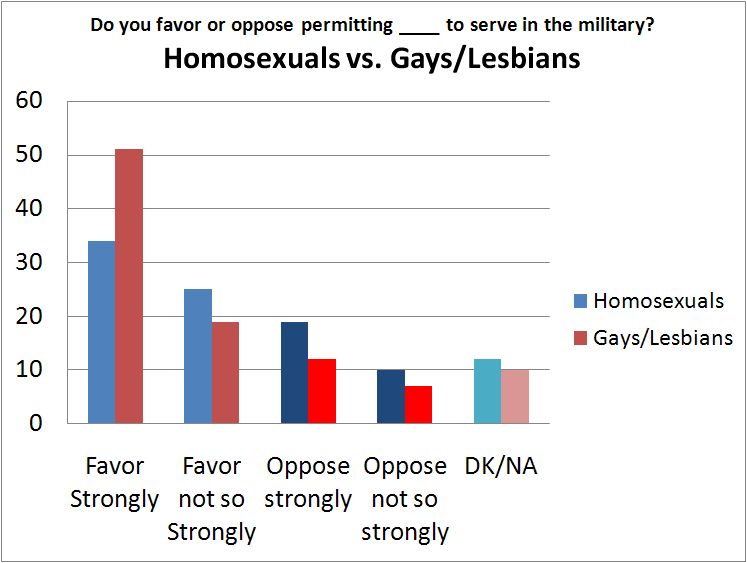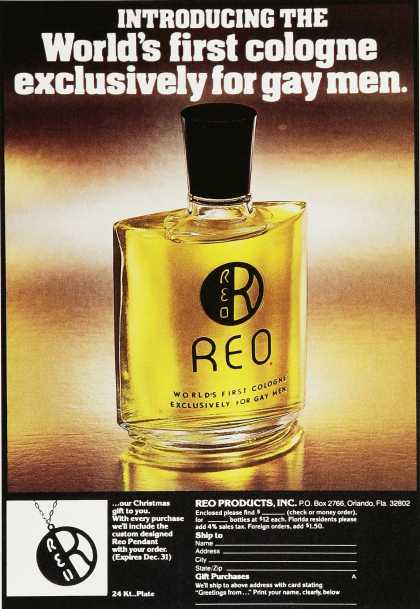Dimitriy T.M. sent in a link to an article at CBS news about changing attitudes toward gays and lesbians. The poll found that the proportion of people who say they know someone who is gay or lesbian has increased dramatically since 1992:
This differs quite a lot by age, however:
It seems likely that the difference is a reflection of increased visibility of gays and lesbians in our culture, such that younger people know more people who openly describe themselves as gay. In general, knowing someone who is gay is correlated with more positive attitudes toward gays and lesbians.
Over time people have also become more accepting of gays and lesbians, though the number saying homosexual relations are wrong has increased slightly between 2009 and 2010 (from 41 to 43 percent).
Over half of Americans believe there should be legal protections to prevent discrimination against gays and lesbians.
The wording of questions seems to affect people’s reported attitudes, with people being slightly less tolerant when relationships are described as “homosexual” than when the term “same-sex” is used:
If younger people are more accepting of gays and lesbians than older generations, it seems that we can expect more increasingly positive attitudes over time, unless it turns out that people become less tolerant of gays and lesbians as they get older. Overall, the responses here seem to justify some optimism about increasing gay rights and decreasing discrimination.

